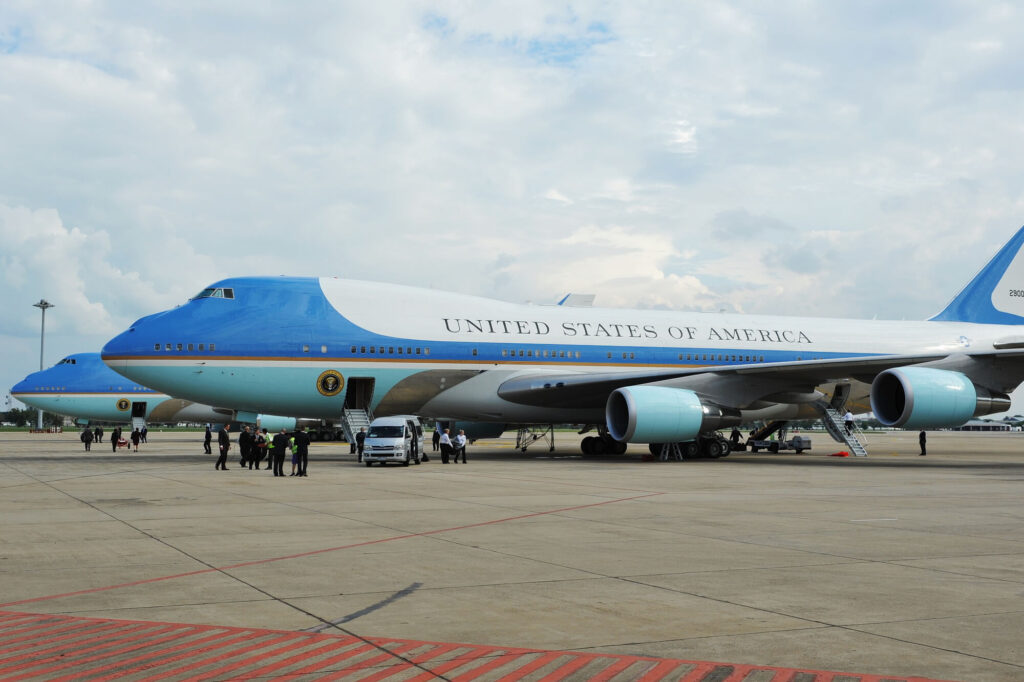Boeing warned the United States Air Force it would be a year late on delivery of the two future Air Force One presidential aircraft and asked to renegotiate the contract price.
Since 2007, the USAF is studying a possible replacement for the two VC-25A aircraft, the heavily modified Boeing 747 currently used as the main air transportation for the President of the United States. In January 2015, it announced that they would be replaced by two new 747-8s. In July 2018, Boeing received a $3.9 billion contract to convert the two aircraft to the Air Force One standards, with a delivery set for December 2024.
Those standards include but are not limited to an advanced radar system, a radar jam system, flare and chaff countermeasures to protect it from incoming missiles, and very-low-frequency radio systems that allow communication with submerged submarines.
However, Boeing warned the USAF that it will likely be twelve months behind the original schedule, and appealed for a review of the contracting price. This was revealed on June 8, 2021, by Darlene Costello, the Principal Deputy Assistant Secretary of the Air Force Acquisition, Technology & Logistics, in a hearing with the Armed Services Committee of the House of Representatives.
In April 2021, Boeing entered into a legal battle with Texas-based GDC Technics, a subcontractor hired to carry out interior works on the two 747-8 airliners. According to Boeing, GDC was nearly a year behind schedule in fulfilling its contractual obligations.
GDC Technics decided to counter-sue, claiming that it was “Boeing’s mismanagement of the completion of two Air Force One presidential aircraft, not delays caused by GDC, that has caused a delay in the completion of those aircraft.” Later the same month, GDC Technics filed for voluntary Chapter 11 bankruptcy protection. The dispute eventually led Boeing to record a $318-million pre-tax charge.
“We thought this was maybe a program where the government got a good deal,” commented Joe Courtney, Democratic congressman from Connecticut. Former US President Donald Trump protested shortly after his arrival at the White House against the initial contract price of over $4 billion. Boeing managed to reduce the price by offering two 747-8s initially intended for the Russian airline Transaero, which had gone bankrupt.

